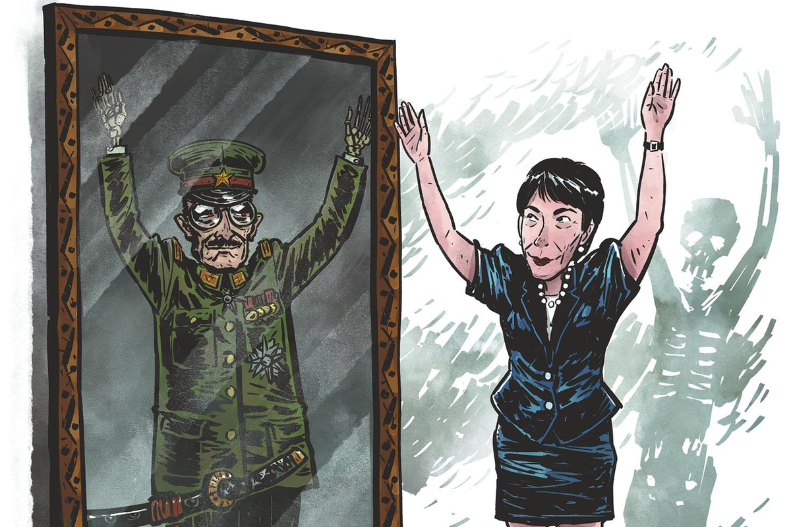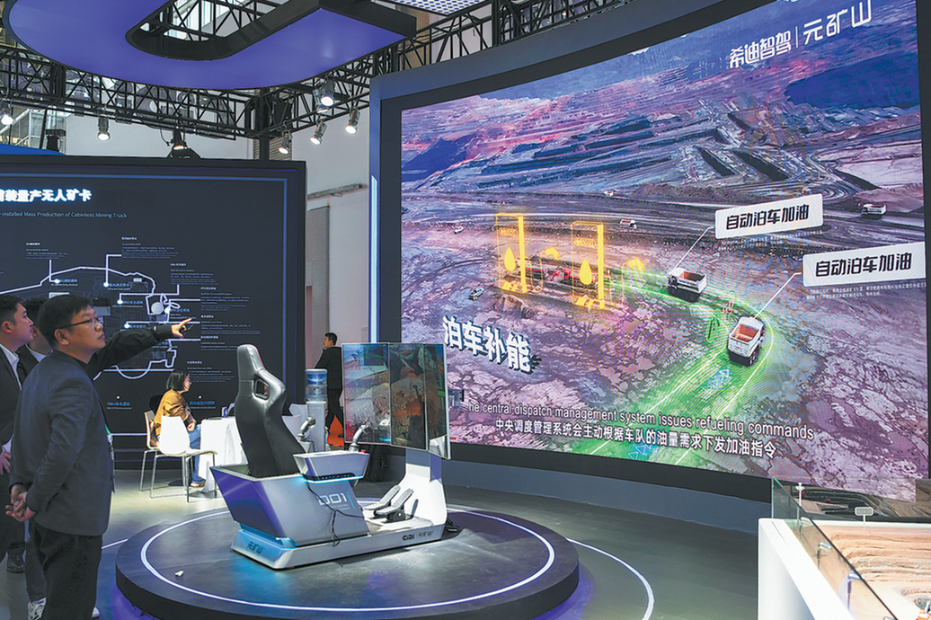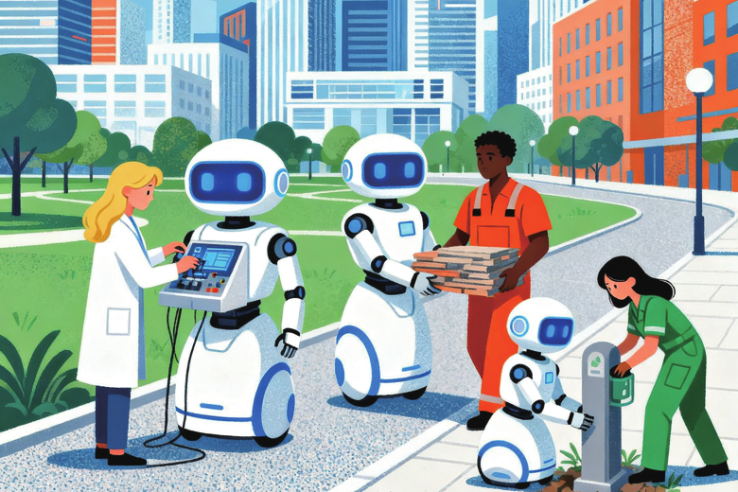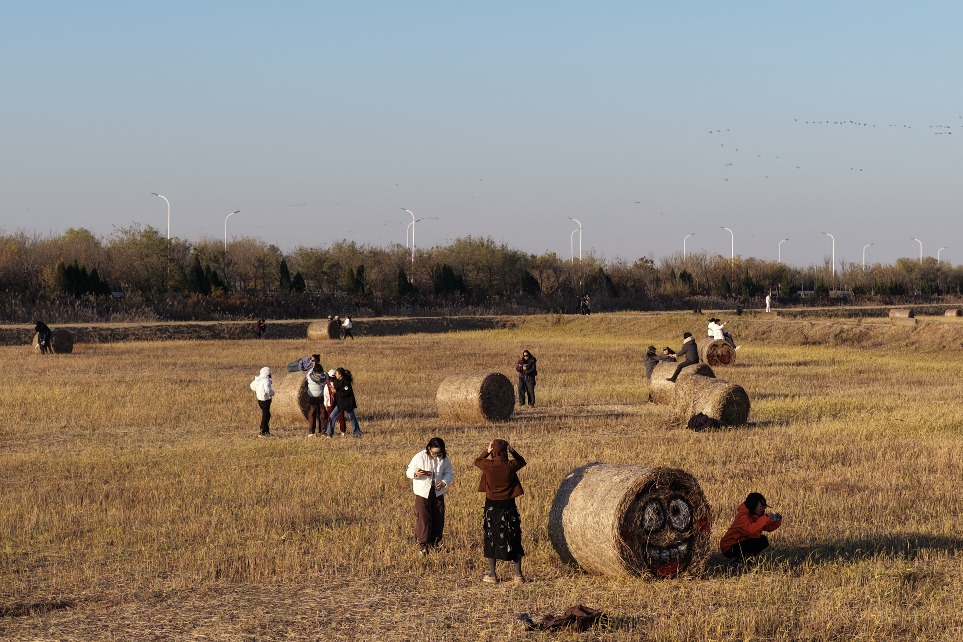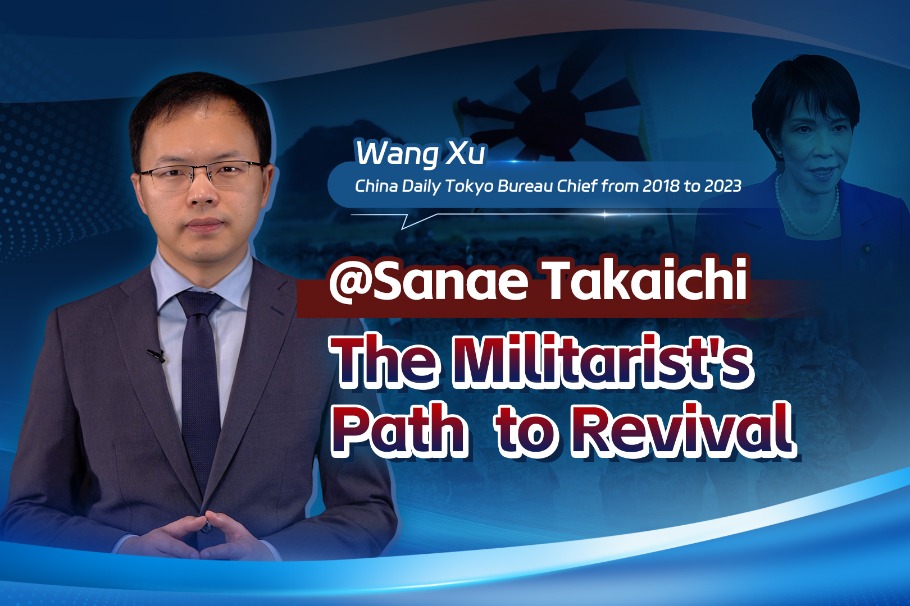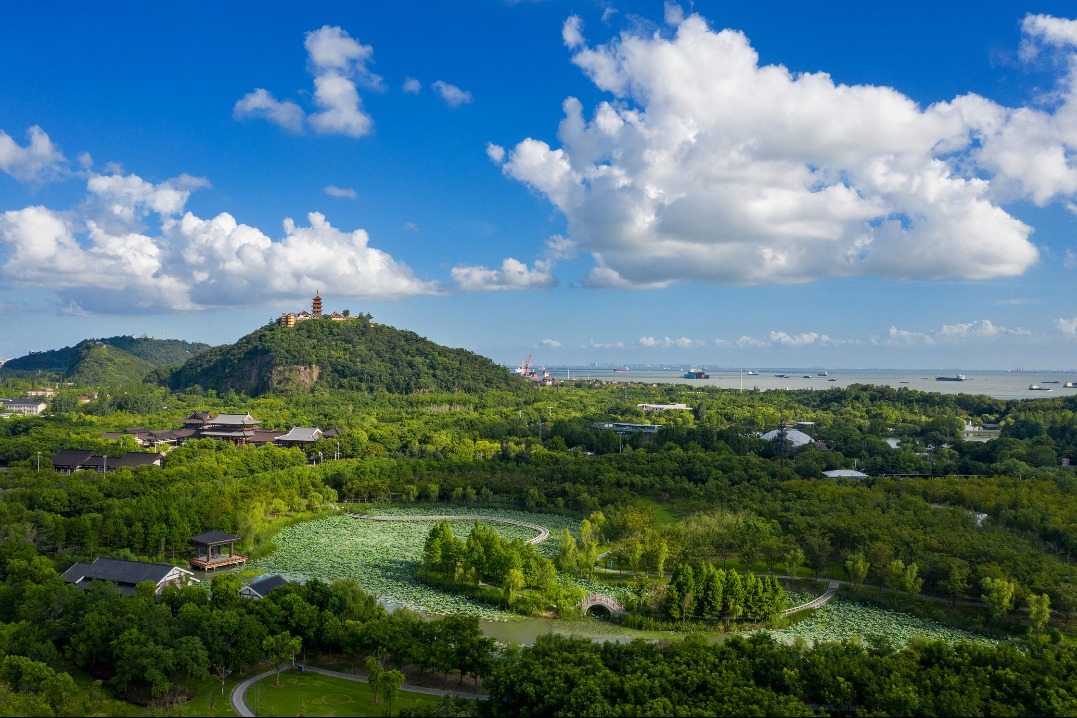First ladies, presidents mourn Rosalynn Carter
By AI HEPING in New York | chinadaily.com.cn | Updated: 2023-11-29 11:43
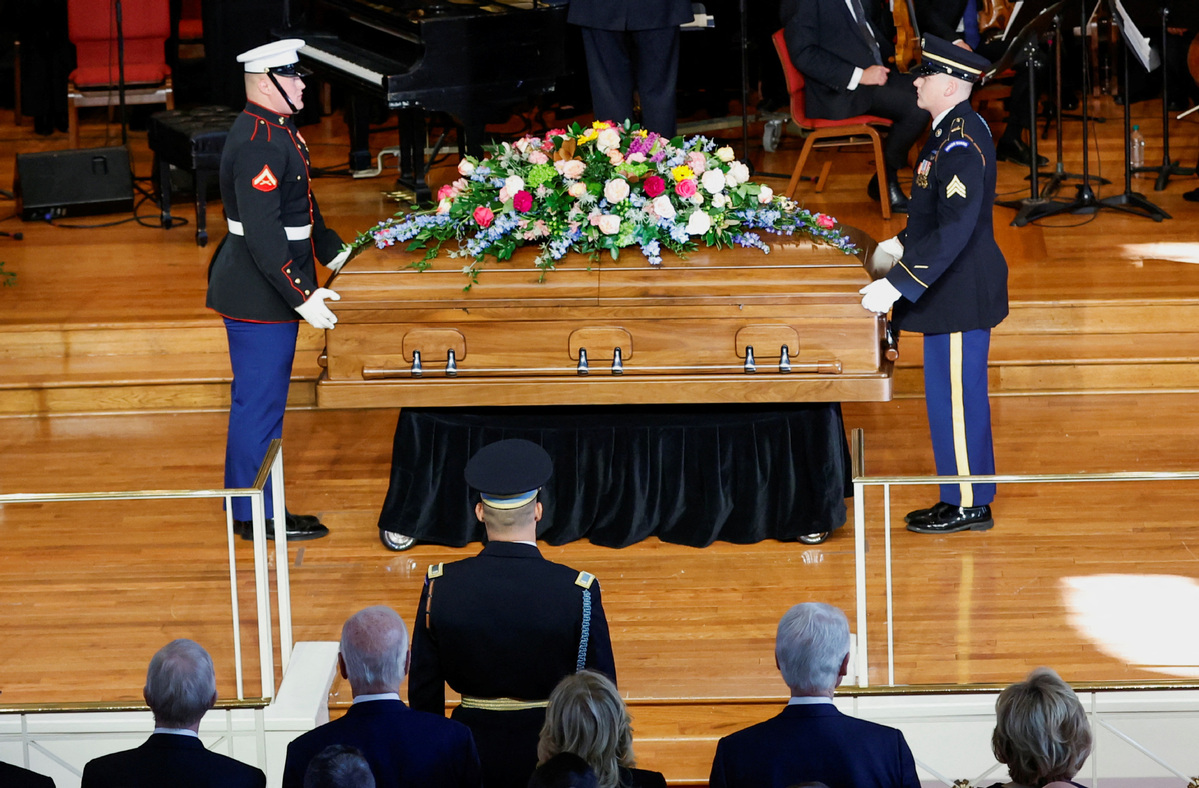
Rosalynn Carter — wife of Jimmy Carter, who as US president in 1979 normalized relations with China — was mourned Tuesday by every living US first lady and three presidents, including her now 99-year-old husband.
The tribute service at Glenn Memorial Church in Atlanta was the second day of a three-day schedule of public events celebrating the former first lady and global humanitarian who died Nov 19 at the age of 96 at home in Plains, Georgia.
Born Eleanor Rosalynn Smith in 1927 in Plains, the former first lady was valedictorian of her class at Plains High School and later attended Georgia Southwestern College, where she was class vice-president, graduating in 1946.
She was politically active during her husband's presidency and would sit in on Cabinet meetings. Mrs. Carter was known for her advocacy of mental health and worked with Jimmy Carter in the nonprofit housing organization, Habitat for Humanity.
The former president, who is 10 months into home hospice care and hadn't been seen in public since September, watched from his wheelchair, reclining and covered by a blanket featuring his wife's face, with his son Chip and daughter Amy holding his hands. The Carters' other sons, Jeff and Jack, flanked them.
President Joe Biden and first lady Jill Biden, longtime friends of the Carters, joined them in the front row, along with former president Bill Clinton and former secretary of state Hillary Clinton and former first ladies Melania Trump, Michelle Obama and Laura Bush.
Vice-President Kamala Harris and second gentleman Doug Emhoff paid their respects, as did Georgia's US senators and Governor Brian Kemp and his wife, Marty. More than 1,000 people, including a sizable contingent of Secret Service agents, filled the sanctuary. Former presidents Donald Trump, Barack Obama and George W. Bush were invited but didn't attend.
Tom Watkins, a former adviser to the Michigan-China Innovation Center, told China Daily: "Mrs. Rosalynn Carter was a true partner to President Jimmy Carter in all facets of his life. She was also a global humanitarian leader in her own right. If you looked up a model servant leader in the dictionary, you would find the first lady's picture.
"I had the pleasure of meeting Mrs. Carter on several occasions. Perhaps the most memorable is when she spoke at an international mental health conference I organized in 1988 in Detroit. Also in attendance were four preeminent mental health Scholars from the PRC. Mrs. Carter acknowledged the work of the PRC in upgrading the prospects of the poor and disabled as they worked on reforms and opening up."
In 2009, Rosalynn Carter traveled to Beijing with her husband, along with Henry Kissinger and Zbigniew Brzezinski, to mark 30 years after the normalization of relations with China.
When President Carter normalized relations with China in January 1979, the one person at his side was the first lady.
James Chau, president of the China-United States Exchange Foundation, said in a statement:
"In a few weeks from now, the two countries will mark the 45th anniversary of that historic event. We will remember Mrs. Carter and we will recall her words that became her guiding principle: 'Do what you can to show you care about other people, and you will make our world a better place.'
"All of us at the China-United States Exchange Foundation express our sincere condolences to President Carter and his children, and the women and men of The Carter Center who will extend the impact of Rosalynn Carter's profound legacy.''
The Carter Center is a nongovernmental, nonprofit organization founded by the former president in 1982. One of its major objectives has been to promote peaceful relations between the US and China.
In the Shanghai Institute of American Studies' Forty People, Forty Years series commemorating the 40th anniversary of diplomatic normalization between the United States and China, Carter elaborated on what the historic event meant to him.
In his 1976 presidential election campaign, Carter announced his commitment to pursue normalization.
"I consider the normalization of diplomatic relations with China as an especially historic achievement," he said in the interview.
"Of all that I was able to achieve during my term as president, normalization with China may have been the most beneficial to world peace and understanding."
Carter said he believed that the normalization of relations between the two countries would advance the cause of peace in Asia and the world.
"The People's Republic of China comprised about one-fourth of the world's total population and played a major role in international affairs. That reality needed to be officially recognized by my country," Carter said.
He said "it was clear to me that both the Chinese and American people would benefit greatly from the commercial and cultural relations that normalization would bring. I also was confident that normalization would include a renewal of the historic friendship between us."
Asked in the interview, "China-US relations today are confronted with circumstances quite different from 40 years ago. Do you think there are any opportunities for today's leaders to set a new tone for this relationship in the next 40 years? What advice would you give them to keep our relations resilient and robust?"
Carter responded: "Some observers of China are saying that China is not adapting its government to become like the US, and therefore we should reject the principle of engagement that has served as the basis of American policy.
"I would remind people who make such claims that when we normalized relations, we knew that the US and China had vastly different cultures, histories, forms of government, interests, and levels of development.
"We acknowledged these differences and anticipated that differences between our two countries would persist," he said. "But we also believed that the goals that bound us together — mutual respect, the pursuit of peace, prosperity, and progress — were much more important than the differences that divided us.
"American and Chinese leaders must explain that peace is beneficial to everyone. War not only involves economic sacrifices, but also personal ones."
Carter mentioned that the Chinese word for crisis — weiji — can be divided into two characters, one standing for danger and the other standing for opportunity, meaning that in a crisis, one should be aware of the danger, but recognize the opportunity.
"If there is a crisis now in US-Chinese relations, I believe that opportunity can be found within the people of both countries, who are interacting with each other more than ever before. So long as Chinese and Americans deepen people-to-people interactions by attending each other's universities and doing business in each other's countries, they will continue to be the anchor of the relationship."





